An independent director is a member of the board who:
-is a non-executive director of a company,
-does not haveany kind of relationship with the company that may affect his/ her independence,
-is not involved in day to day activities of the company,
-helps the company in improving corporate credibility and governance standards.
The companies act and the SEBI regulations has put independent director in the limelight. Both companies act and SEBI regulation have set out specific criteria for the companies to have independent directors.
Also Read- All about Independent Directors- (Part-2)
As per Section 2(47) of the Companies Act, 2013, “independent director” means an independent director referred to in sub-section (5) of section 149.
Applicability of appointing Independent Director as per Companies Act, 2013
The following companies shall have the prescribed no. of Independent directors:
| Listed Companies | Unlisted Public Companies | |
| All listed companies shall have at least 1/3rd of the total no. of directors as Independent Directors | The following unlisted public companies shall have at least 2 directors as independent director:
|
|
| Exceptions for Unlisted Public Companies | ||
The Requirement to appoint Independent Director shall not apply on the following companies:
|
Note:
- The paid up share capital or turnover or outstanding loans, debentures and deposits, as the case may be, as existing on the last date of latest audited financial statements shall be taken into account.
- If a company, under any other rule, is required to appoint higher no. of independent director, then such higher no. of directors shall be applicable.
- An unlisted public company will not be required to appoint independent director, if it ceases to fulfill any of the 3 conditions for 3 consecutive years.
- The provisions of rotation does not apply on Independent directors.
Term of Independent Director
According to section 149(1), an Independent director shall hold the office for a term of 5 consecutive years and shall be eligible for reappointment for another term of 5 years on passing of special resolution in the in the general meeting of the company.
No person can be appointed as an independent director for more than consecutive 2 terms, however such person shall be eligible to be appointed as an independent director after expiry of 3 years from the date of cessation of second consecutive term.
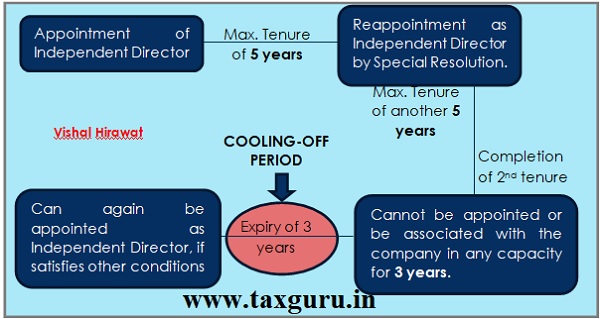
Can an Independent director be appointed for a term of less than 5 years?
MCA vide the general circular 14/2014, dated 09.06.2014 clarified that, the act provides for a “term up to 5 years”, for an independent director. Hence, appointment of an ID for a term less than 5 years would be permissible and the appointment for any term (whether 5 years or less) would be treated as One term.
Vacancy of an independent director
Any intermittent vacancy of an independent director shall be filled-up by the Board at the earliest but not later than:
- immediate next Board meeting, or
- 3 months from the date of such vacancy, whichever is later.
Maximum Number of companies in which a person can be appointed as Independent director, as per companies Act and SEBI
| Companies Act, 2013 | SEBI (LODR) Regulations, 2015 |
| Companies Act, 13 does not talk about the maximum number of independent directorships, but section 165 of the act prescribes the maximum no. of directorships that a person can hold.
According to section 165, NO PERSON shall hold office of director, including alternate directorships, in more than 20 companies at the same time. Provided the maximum no. of public companies in which a person can be appointed as a director shall not exceed 10. [Therefore, Section 165 does not differentiate between public companies and listed companies] It shall be noted that the members of a company may, by special resolution, specify any lesser number of companies in which a director of the company may act as directors. |
Regulation 17A prescribes the maximum no. of directorships, including alternative directorships that can be held by a person at any point of time:
1. A person shall not serve as independent director in more than 7 listed entities. 2. Any person who is serving as a whole time director/ Managing Director in any listed entity shall serve as an independent director in not more than 3 listed entities. Note: For the purpose of counting the maximum no. of directorships, the listed entity shall be only those whose equity is listed on a Stock Exchange. |
Eligibility criteria to be appointed as Independent Director
As per Section 2(47) of the Companies Act, 2013, “independent director” means an independent director referred to in sub-section (5) of section 149.

–

–

–
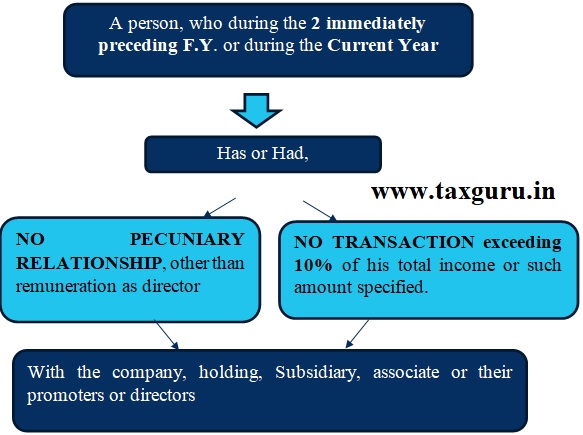
–
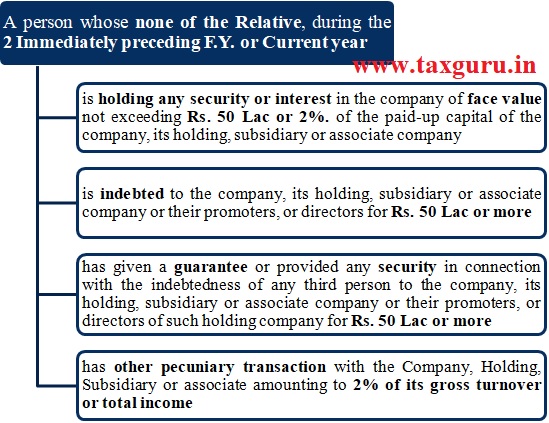
–
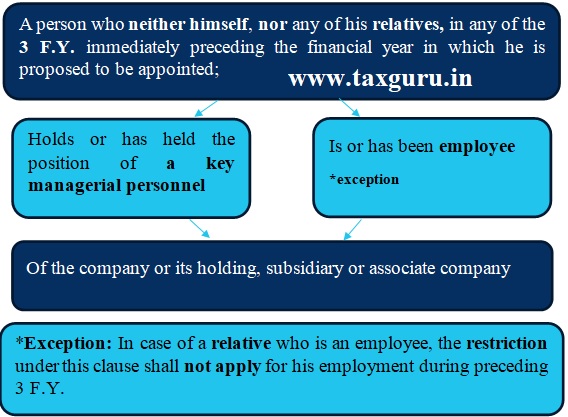
–
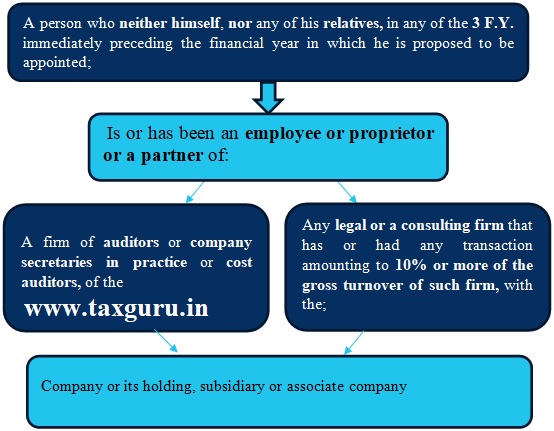
–
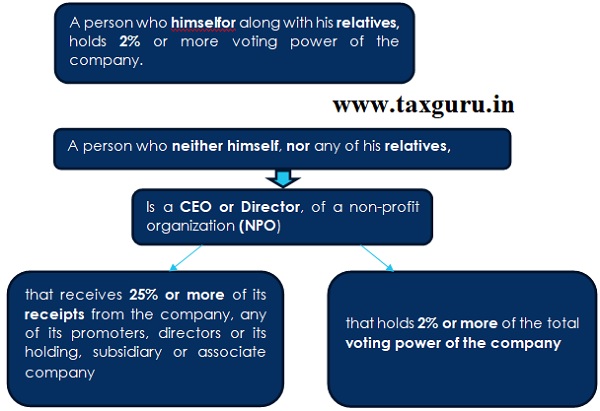
Refer to my next article for information about independent director database.
For any clarification please reach out to me on vishalhirawat@yahoo.com




